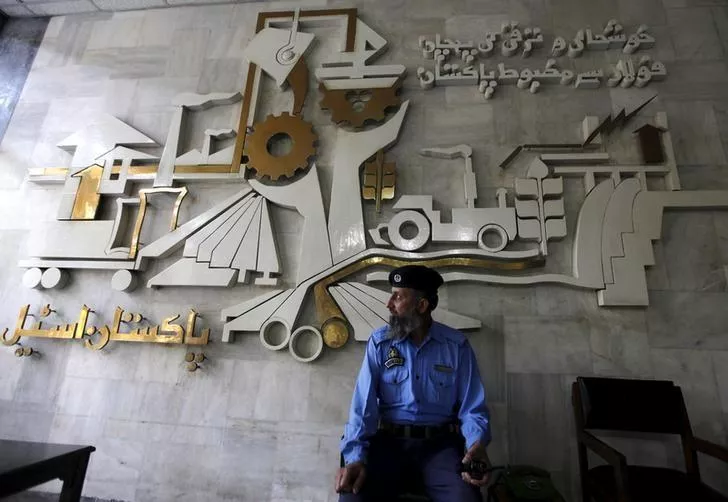Land dispute hampers Covid-19 burials in Sindh
Sindh govt, Pakistan Steel Mills wrangling over land reserved for burying coronavirus victims
KARACHI: As the number of Covid-19 cases continues to surge in the province, with many patients succumbing to the disease, the local capacity to handle and bury the bodies properly has become a challenge for the authorities concerned.But instead of coming up with a workable plan to tackle the situation, the provincial and federal governments have started a dispute over a piece of land that the former had reserved to use as a burial ground for the deceased.
Per sources, the dispute arose when Pakistan Steel Mills (PSM), run by the federal government, strongly opposed the move and claimed the said piece of land to be its property. It accused the Sindh government of using the land as a graveyard without seeking approval from the centre.
The land is situated in the outskirts of Karachi, near the Link Road that connects the National Highway with the M-9 Motorway. Although the land had been lying vacant for many years, things turned sour between the Steel Mills and the Sindh government when the latter used the property to bury the bodies of two Covid-19 patients, including that of Pakistan Steel Mills’ former medical officer Dr Abdul Qadir Soomro.
“PSM’s land has been used to bury two coronavirus patients [without approval] which seems to be another encroachment effort on part of the provincial government. The [move] is not acceptable to PSM at any cost”, the management of Pakistan Steel Mills stated in a letter sent to the Sindh government.
The district administration of Malir has stopped burying more bodies of Covid-19 patients in its graveyard owing to a lack of space. Last week, the body of Ghulam Shabbir Jandan, a resident of Gulshan-e-Hadeed which is the residential colony of PSM, had to be shifted to the graveyard of another area because of the ongoing dispute.
Speaking to The Express Tribune, a social worker, Sadruddin Shaikh said the land identified by the Sindh government for the burial of coronavirus-related bodies near the Link Road was a very suitable location.
“Being in the outskirts of Karachi, it was a viable solution to put the land to good use as it was lying vacant for years,” he said. “The area is based on 80 acres of land, while the Sindh government had only reserved 20 acres for the graveyard in keeping with the ongoing crisis.”
The disputed land comes under Union Council number 18, Chand Paro in District Malir. Shedding light on the matter, the Union Council’s chairperson Abdul Sattar said the ownership of the land is disputed among different parties, especially between the Sindh government and the Pakistan Steel Mills.
“Apart from the political parties, the local Jokhio tribe has also claimed the land to be their property and a petition in this regard is pending in the Sindh High Court,” he said.
According to the management of Pakistan Steel Mills, the land is part of PSM’s Township and the Sindh government has no right to reserve it for burying coronavirus dead bodies over there. PSM claimed to have purchased 6,933 acres of the said land from the Sindh government whereas the remaining 1,147 acres were bought from private parties.
It is pertinent to mention that despite the ownership claim, the PSM has still not secured its property through demarcation. The PSM management said it has been requesting a demarcation of the land since 2011 but it has not been done yet.
When approached for a comment regarding the issue, Malir District’s Assistant Commissioner Munshad Shahani rejected the PSM management’s claim, saying that the land is property of the Sindh government.
“The provincial government will continue the burial of dead bodies on the land, including those dying of Covid-19,” he said.
Published in The Express Tribune, May 13th, 2020.


COMMENTS
Comments are moderated and generally will be posted if they are on-topic and not abusive.
For more information, please see our Comments FAQ